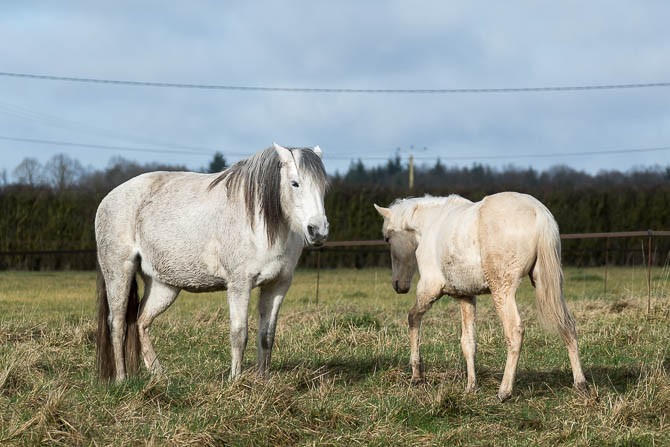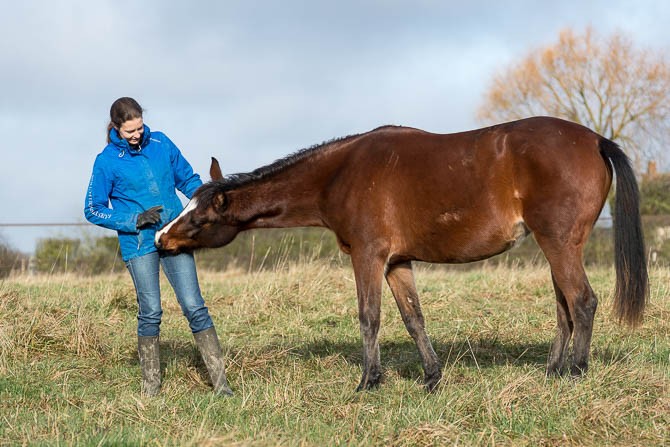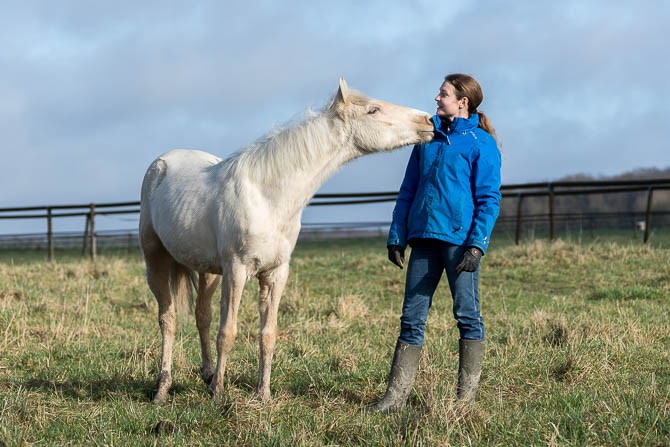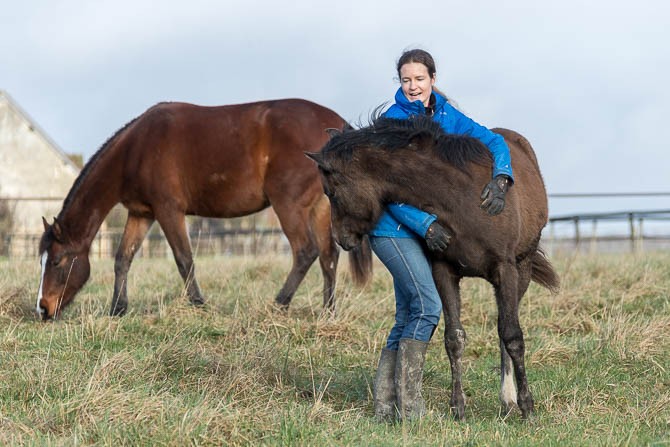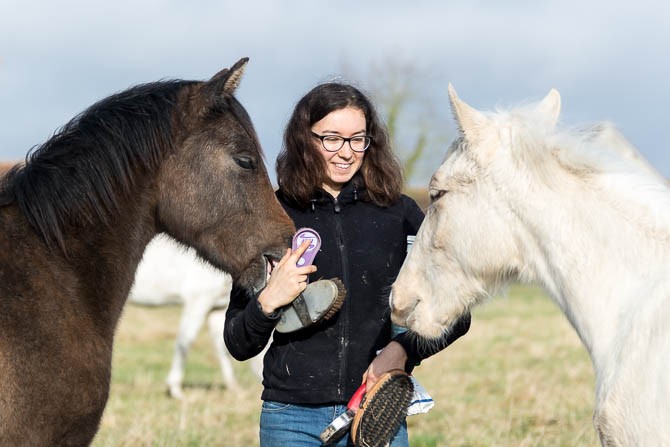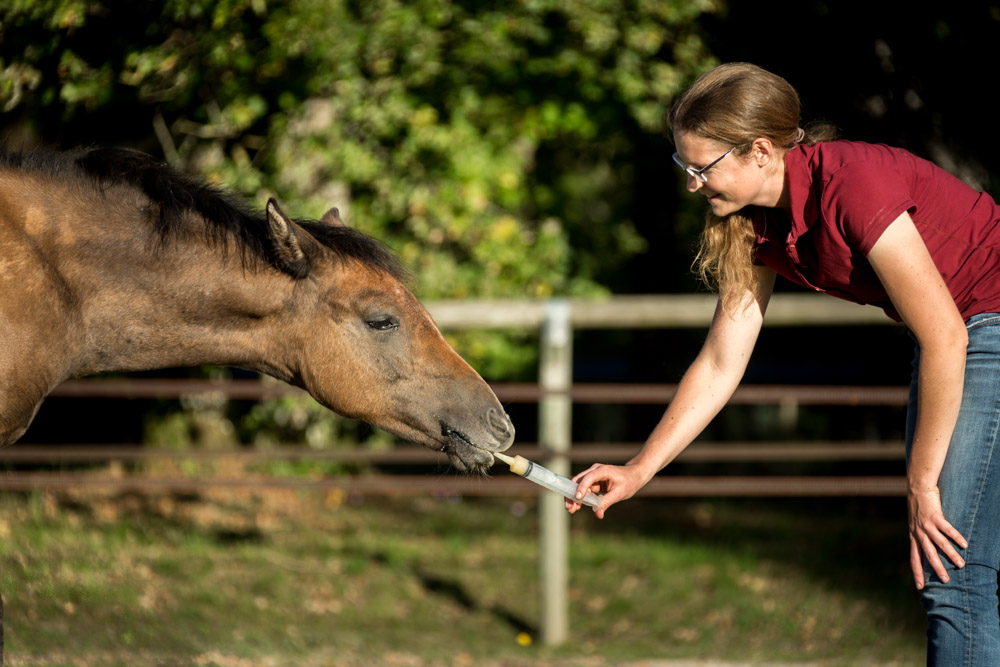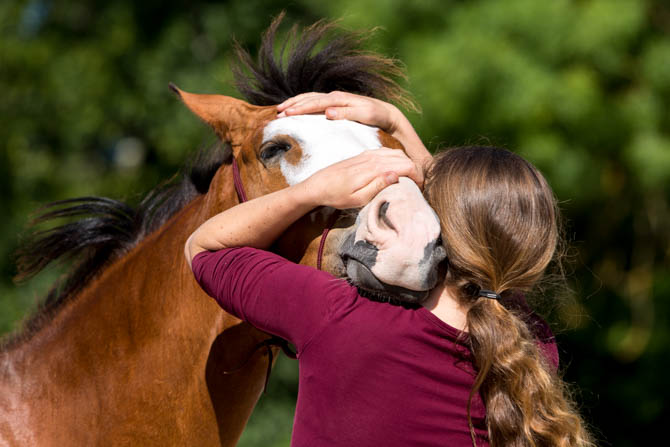Foal Education - How to Set Healthy Boundaries for Your Foal [Slideshow]
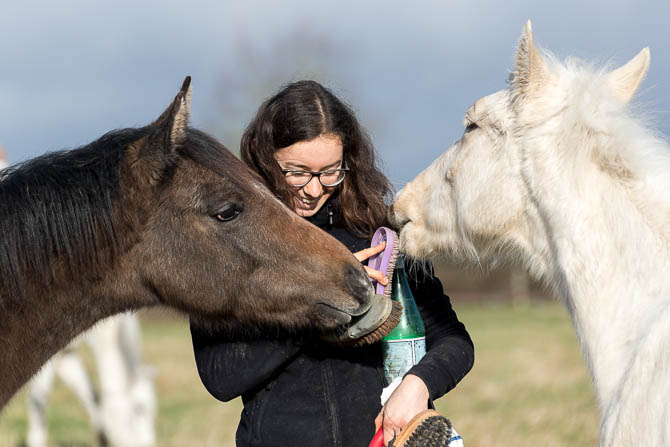
Does this sound familiar to you?
“When he was little he was so cute and cuddly. He always came for scratches when he saw us and we did our best so that he would trust us and not be afraid. Now he bites and wants to play with us quite rudely and kicking towards us when we make an attempt to tell him off. He even rears when we try to lead him. Why did he change and why so suddenly? Two months ago he was still little and cute…”
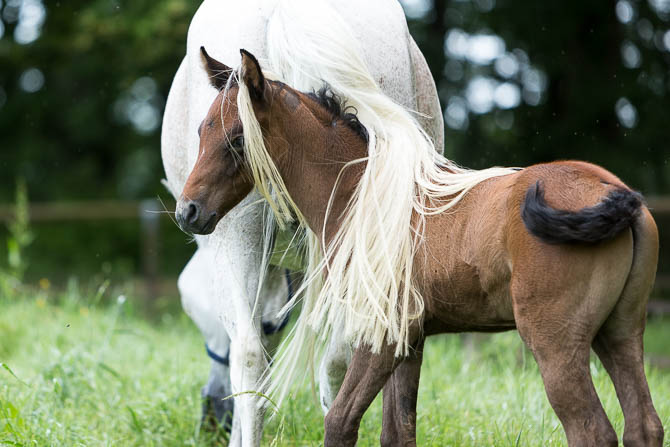
It seems to be a pretty common scenario: everything is fine as long as foals are little and innocent. But as they grow up physically, so do their play drive and self-confidence. This can be to our disadvantage if we don’t put healthy limits in time.
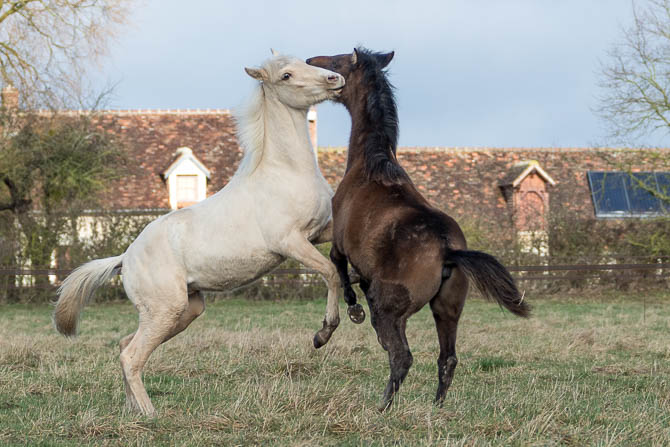
The big question is: how can we do that in a way so the foal doesn’t get scared of us or we end up unhappy? How can we create that healthy, joyful and happy relationship?
Take a Lead Mare as an Example
It clicked the first time I could observe a true lead mare with some foals which weren’t her own. All the foals magically seemed to respect her without being afraid. The foals would sometimes playfully nip or kick others but they never tried to do it with her.
She had this incredible presence; she didn’t need to assert herself in a physical way. Although I knew she would if necessary. I have seen her do it many times with adult horses. She behaved calm, sovereign and sure of herself. She definitely knew exactly how she would like the foals to behave around her.
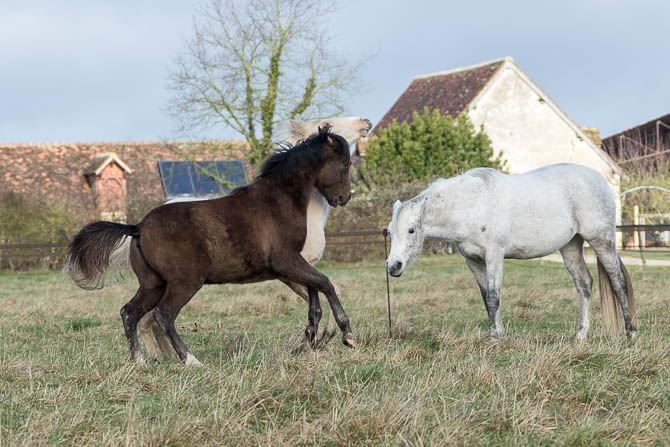
How the Mother Insists on Politeness
The second observation was when my own mare Mazirah had a foal. During the first weeks, Mazirah was quite tolerant with little Maserati. She didn’t even say much when he accidentally kicked her or ran into her.
As Maserati got older though, she started to be stricter with him, especially when nursing. He had to be polite and careful, otherwise, she would bite his butt. When he was behaving very rude, she would even kick him. Like this, he learned to say please and thank you.
Mazirah never acted aggressively or mean to him, but got her point across effectively and with the required firmness. She never lost her temper when she had to repeat herself over and over. The way she corrected him was also worth taking note off: before she got physical, she always gave a vocal warning!
When we observe nature, it seems that we have to adopt three things:
1. Know what we want with a quiet and self-assured presence
2. A firm and friendly attitude when we have to assert rules
3. to warn verbally before correcting physically
Where do “natural presence” and self-assurance come from?
First of all, you need to gain clarity about the social rules you would like your foal to maintain when with you. Don’t let anyone tell you what to allow your foal to do and what not. Free yourself of other people’s opinion and their shoulds and shouldn’t s. You have to truly own them - they have to come from you.
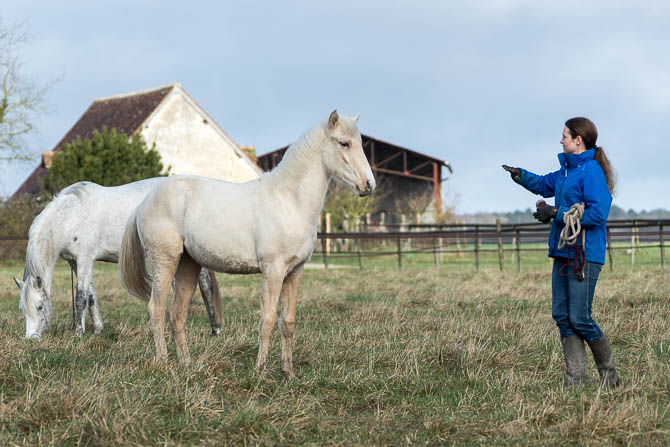
Then listen to yourself: What feels right to you? What behaviour of your foal makes you feel irritated or unsafe? As soon as you feel bothered or just slightly unsafe, this is a boundary you should hold up.
Keep in mind how you would like your horse to behave once he is an adult. If you allow him to bite your pockets for treats now, he will do it even more once he is older. Some things might be cute as long as they only weigh 100 -200 kg but might get unsafe once you imagine them 300 kg heavier.
Make a list
This list will be different for everyone because everybody is unique. Take a pen and make a list. It could look a bit like this:
1. Don’t bite or nip at me
2. Don’t push on me or crowd me
3. No ears back attitude towards me or other people
4. I am not a play buddy, so don’t try to play foal games with me
5. don’t rear when I am close
6. Don’t turn your hind end towards me and don’t even think about kicking!
Often times making such a list already helps a big deal to get clarity about boundaries for yourself. This will automatically give you better timing when you have to set them.
Keep in mind that everybody is different with a different point of view. That is why your list of rules might be different to someone else’s. Make sure they feel good and congruent to you - then you will find it easier to keep them up with consistency.
There is nothing worse than ever-changing rules and never knowing what to expect. Even more so for a horse, you wish that he trusts and respects you as a leader.
How do you manage to be firm and friendly at the same time?
A common problem is to be either too soft to be effective or to act out of frustration/anger. This will cause the foal to get either cocky or afraid.
Remember these things:
1. It is a horse, they live in the moment. They react in the moment, not because they planned it overnight. So don’t take it personally.
2. Boundaries give security and build the frame where your horse can feel safe within. They are even necessary for your horse to feel truly safe. Imagine you aren’t sure what you are allowed to do and what not. The sooner somebody lets you know the rules clearly, the sooner you can feel safe. So help your horse to feel safe sooner.
3. Horses only get afraid of you, if you correct them while being emotional. Or, when you keep emotions going on afterwards. When you are emotional, your timing and intensity are rarely spot on.
Why do we get so easily emotional about boundaries?
What is it that makes us unhappy or feel bad about ourselves? I believe that we start to get emotional when we aren’t sure of ourselves anymore. When we think that we aren’t doing things perfect or when we feel that we have to act against our inner values. When we stopped being our true self. Frustration starts where knowledge ends. Take a minute to think about it…
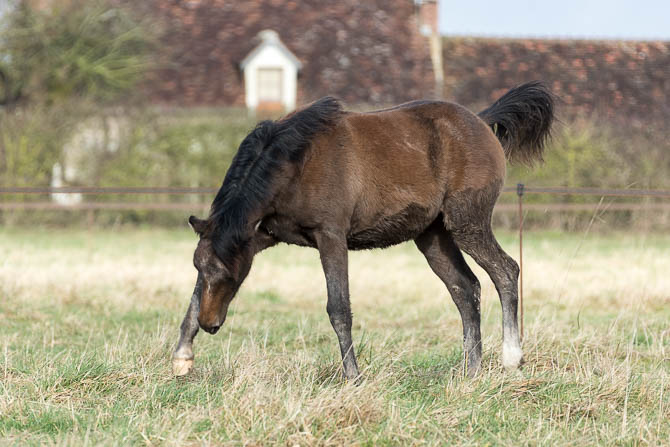
Give a Verbal Warning Before Correcting Physical
Yes, sometimes we have to get physical with our horses—even with our foals. If it comes to a situation like this, do your foal a favour and give a verbal warning about 1 sec in advance. This gives your foal a chance to change his mind and not act out what he/she was about to do. Always use the same word and tone of voice. A sharp “Hey”, “No” or” Sst” usually does the job. Choose a word that comes naturally to you. You don’t want to find yourself searching for the right word the moment you need it. These moments tend to arrive out of the blue, not leaving you much time to think!
Timing is crucial here:
You have to give the warning the instant you see that your foal is about to cross a boundary—not when it already happened! If your foal still oversteps the boundary after the warning, you get physical in a way that the foal understands the message. I match the intensity the foal puts into it: big action— a firmer consequence, little action—little consequence.
How to correct?
Of course, it depends on the situation. Let’s take the most common issue as an example: nipping and crowding.
You can do a body block
by raising your arm quickly and block the nose of your little gangster.
You can back him up by the nose.
You can push the front end and nose away from you.
Place one hand on the foals nose, the other on his shoulder and push with assertiveness.
You can wiggle your elbows up and down,
like in the chicken dance, to assert your personal space.
Don’t forget to switch back to friendly right away! Then corrections become something non-exciting and are accepted easily.
Conclusion
Setting limits for our foals is crucial for a healthy horse-human relationship. Set things clear with your little one, he will thank you for it. Start by creating clarity in yourself and remember: nothing is worse than not knowing what’s OK and what’s not. You will both be able to enjoy your time together even more!
Related Articles
- 1
